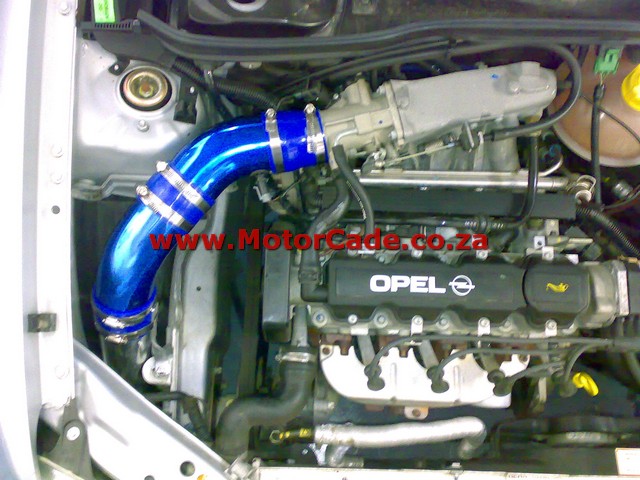Engine Buying Specialist Tips on Choosing the Right Engine for Your Specific Requirements
Choosing the ideal engine for your particular needs involves a complicated interaction of variables that go past mere horsepower numbers. By delving into the intricacies of power versus efficiency, assessing fuel ratings, and budgeting for long-term prices, one can absolutely enhance their engine choice.
Power Vs. Performance: Discovering the Equilibrium
When picking an engine, it is vital to strike a balance in between power and performance to fulfill your particular demands properly. Power refers to the engine's capacity to produce energy for propulsion, establishing variables like acceleration, lugging capability, and total efficiency - Opel Corsa 1.4 Engine Price. On the other hand, effectiveness associates with how well the engine makes use of fuel to produce power, influencing factors such as fuel economic situation and ecological kindness
Attaining the right balance in between power and performance is vital due to the fact that an engine that is also powerful may take in extreme gas, bring about greater operating expense and unneeded stress on the setting. On the other hand, an engine that prioritizes effectiveness over power might cause slow-moving performance, specifically sought after circumstances like lugging heavy lots or driving uphill.
To make an educated choice, consider elements such as your common driving conditions, the intended use of the lorry, and your personal choices. By evaluating your needs and priorities, you can choose an engine that strikes the excellent equilibrium between power and efficiency, ensuring ideal performance while decreasing ecological effect and operating expenses.
Understanding Engine Size and Kind
To better refine the option procedure of an engine that strikes the optimum balance in between power and performance, it is necessary to delve into the details of recognizing engine dimension and kind. Engine dimension refers to the total volume of air and gas that can be pushed through the engine cyndrical tubes.
Typical engine types include inline engines, V engines, and rotating engines, each with its one-of-a-kind advantages and drawbacks. Understanding the interaction in between engine size and kind is crucial in picking an engine that aligns with your details needs and top priorities, whether it be power, effectiveness, or a balance of both.

Consider Your Automobile's Requirements
If you are looking for an engine for a sturdy truck that will certainly be made use of for towing, you will need an effective engine with high torque abilities. On the various other hand, if you are selecting an engine for a compact cars and truck primarily used for city travelling, gas effectiveness may be a more crucial element to think about.
Additionally, the terrain on which the lorry will largely operate need to influence your engine option. If you often drive in hilly or hilly locations, a durable engine with excellent climbing up power will certainly be required. Conversely, for level surfaces, an extra fuel-efficient engine might be enough. By straightening the engine specs with your car's requirements, you can make certain that your car runs effectively and fulfills your efficiency expectations.
Assessing Fuel Performance Rankings
Assessing fuel effectiveness scores is Bonuses an essential aspect of picking the best engine for your automobile, making certain expense financial savings and environmental sustainability. Gas performance scores, usually gauged in miles per gallon (MPG) for fuel engines or kilowatt-hours per 100 miles (kWh/100 miles) for electric engines, indicate just how far a vehicle can travel on a certain quantity of gas or power. Greater MPG or lower kWh/100 miles values represent extra reliable engines, translating to lowered gas costs and reduced carbon emissions.
When assessing fuel performance scores, consider your driving requirements and habits. If you commute long distances daily, a very fuel-efficient engine can cause substantial savings in time. Additionally, compare various engine alternatives within the very same vehicle class to recognize one of the most economical selection. Elements such as engine size, weight, aerodynamics, and crossbreed or electrical capacities can all influence fuel efficiency.
Budgeting for Long-Term Expenses
Strategically intending for long-term expenditures is crucial when selecting an engine, ensuring financial sustainability over the car's lifespan. While the first acquisition rate of an engine is a considerable aspect, it is crucial to consider the long-lasting prices related to maintenance, repair services, and gas consumption. Choosing a much more fuel-efficient engine might have a higher in advance price yet can result in substantial cost savings over time. Regular maintenance, such as oil changes, filter substitutes, and tune-ups, is necessary to maintain the engine running efficiently and efficiently, minimizing the risk of costly repair services down the line.
In addition, investigating the schedule and price of replacement components for the chosen engine is essential in budget plan planning. By thoroughly budgeting for these long-term expenses and factoring them into the decision-making procedure, individuals can straight from the source pick an engine that not just meets their instant requirements but likewise remains cost-effective throughout its lifespan.
Conclusion
To conclude, choosing the appropriate engine for your certain requirements calls for stabilizing power and performance, recognizing engine dimension and kind, considering your automobile's requirements, assessing fuel performance rankings, and budgeting for lasting prices. By meticulously considering these factors, you can guarantee that you choose an engine that satisfies your requirements and gives optimal performance for your vehicle.
To better improve the selection procedure of an engine that strikes the optimum balance between power and efficiency, it is essential to dive into the details of recognizing engine dimension and kind. Engine dimension refers to the overall volume of air and gas that can be pressed through the engine cyndrical tubes. Common engine kinds consist of inline engines, V engines, and rotary engines, each with its distinct Recommended Site benefits and downsides. Comprehending the interaction in between engine size and type is vital in selecting an engine that lines up with your particular demands and priorities, whether it be power, performance, or an equilibrium of both.
